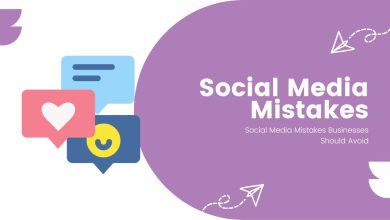
The use of chatbots and messaging apps in customer service and support is becoming increasingly popular as businesses strive to provide the best possible experience for their customers. With the rise of artificial intelligence (AI) technology, consumers are now able to get personalized support and information quickly and easily. Chatbots are automated virtual agents that can be used to provide customer service through text messages while messaging apps allow customers to communicate with a real person to get help with their queries.
1. 24/7 Availability
In today’s world, businesses need to be available at all times to meet customer expectations and create a competitive advantage. Chatbots and messaging apps can provide customer service and support 24 hours a day, 7 days a week. This round-the-clock availability means that customers can access help or answers to their queries at any time of day or night, improving their overall satisfaction with the brand.
The use of chatbots and messaging apps for customer service offers numerous benefits for both businesses and consumers. For companies, it eliminates the need for costly call centers while providing an automated system that is always available. Customers benefit from instant responses without having to wait on hold or speak with an agent directly which saves them time when they have questions or concerns that need addressing quickly.
2. Automation of common tasks
To improve customer service, many businesses are beginning to use automation in their day-to-day operations. One of the most popular methods of automation is through chatbots, which are computer programs that mimic human conversations and can handle common customer inquiries and requests. This allows companies to better serve customers by freeing up employee time for more complex tasks.
Chatbots can be integrated with messaging apps such as Facebook Messenger, WhatsApp, and WeChat, providing a convenient way for customers to get answers quickly. For example, customers may ask a chatbot about order status or account information without needing to wait on hold or speak with a representative over the phone. Additionally, chatbots can quickly answer general questions about the company’s products and services so that employees don’t have to spend time explaining them each time they’re asked.
3. Personalization
Personalization is a critical component of customer service. Chatbots are becoming more and more popular, as they can use natural language processing (NLP) and machine learning (ML) to understand and respond to customer inquiries more naturally than ever before. By making use of NLP and ML, chatbots can provide customers with an engaging and personalized experience that would be impossible without them.
Messaging apps are increasingly being used by businesses to offer customer service due to their popularity among consumers. With messaging apps, customers can directly communicate with the company’s representatives or automated chatbot for assistance in real-time. These sophisticated AI-driven bots use NLP technology to comprehend queries made in natural language by users on the app, allowing them to provide prompt responses tailored specifically according to the user’s needs.
4. Multi-channel support
Chatbots are revolutionizing customer service by providing customers with a way to get help quickly and conveniently. With the advent of multi-channel support, chatbots can integrate with messaging apps and social media platforms, making it easier for customers to communicate with businesses through their preferred channels. This type of customer service offers numerous benefits for businesses looking to improve their customer experience, including faster response times and easier access to information.
Multi-channel support enables customers to reach out via messaging apps or social media platforms without having to pick up the phone or wait in line at traditional customer service centers. Chatbot technology also brings automated responses that can help answer simple questions right away, freeing up time for more complex inquiries that require human attention. Additionally, this technology allows companies to easily track conversations and gain insight into how customers interact on various online channels.
5. Cost-effectiveness
Chatbots are automated programs that use artificial intelligence to respond to customer inquiries, providing customers with a fast and efficient way to get answers. The cost-effectiveness of using chatbots vs employing human customer service representatives is significant, due mainly to the fact that bots are capable of handling a large volume of conversations simultaneously.
Chatbot technology has matured enough for businesses to replace humans with machines when it comes to providing customer support. This is especially true for simple problems such as FAQs or basic troubleshooting. Additionally, the use of messaging apps like WhatsApp and Facebook Messenger not only makes it easier for customers to contact businesses but also allows them to receive quick responses from bots instead of waiting for someone from the company’s support team.
6. Data collection and analysis
By collecting data on customer interactions, businesses can better anticipate customer needs and improve their services to provide a better user experience.
Chatbots and messaging apps provide an automated way for customers to ask questions or get help quickly, without waiting for a response from an employee. This technology also allows companies to capture valuable data on those interactions, such as common questions asked by customers and the time it takes to answer them. This data can be used to inform strategies around customer service and support, as well as identify areas where there may be room for improvement.
By leveraging this data-driven approach to customer service, businesses will have access to powerful insights that can help them deliver superior experiences for their users or clients.
7. Proactive support
One way in which chatbots can proactively identify and address potential customer service issues is through data analysis and predictive analytics. By gathering data about customers’ interactions with chatbots and messaging app services, chatbots can anticipate problems that may arise before they occur. Predictive analytics then allows them to suggest solutions for those problems, ensuring a smooth customer experience.
Not only does this reduce wait times for customers looking for help, but it also enables businesses to stay ahead of any potential hiccups in their services or products before they become major issues.
8. Language support
By allowing customers to speak with a virtual assistant using messaging applications, companies can provide faster and more efficient customer support. What’s more, chatbots can now be programmed to understand and respond to inquiries in multiple languages. This means that companies can provide customer support in the language of their choice and create a better customer experience for users around the world.
With language support, chatbots give businesses an edge over their competition by helping them integrate into international markets quickly and efficiently. Messaging apps are quickly becoming the preferred communication medium for many consumers – especially millennials – meaning that businesses have opportunities to reach out to new audiences through this medium if they choose to invest in a language support for their chatbot or messaging app. This opens up possibilities like targeting individuals across different geographic regions, ethnicities, age groups, etc.





One Comment